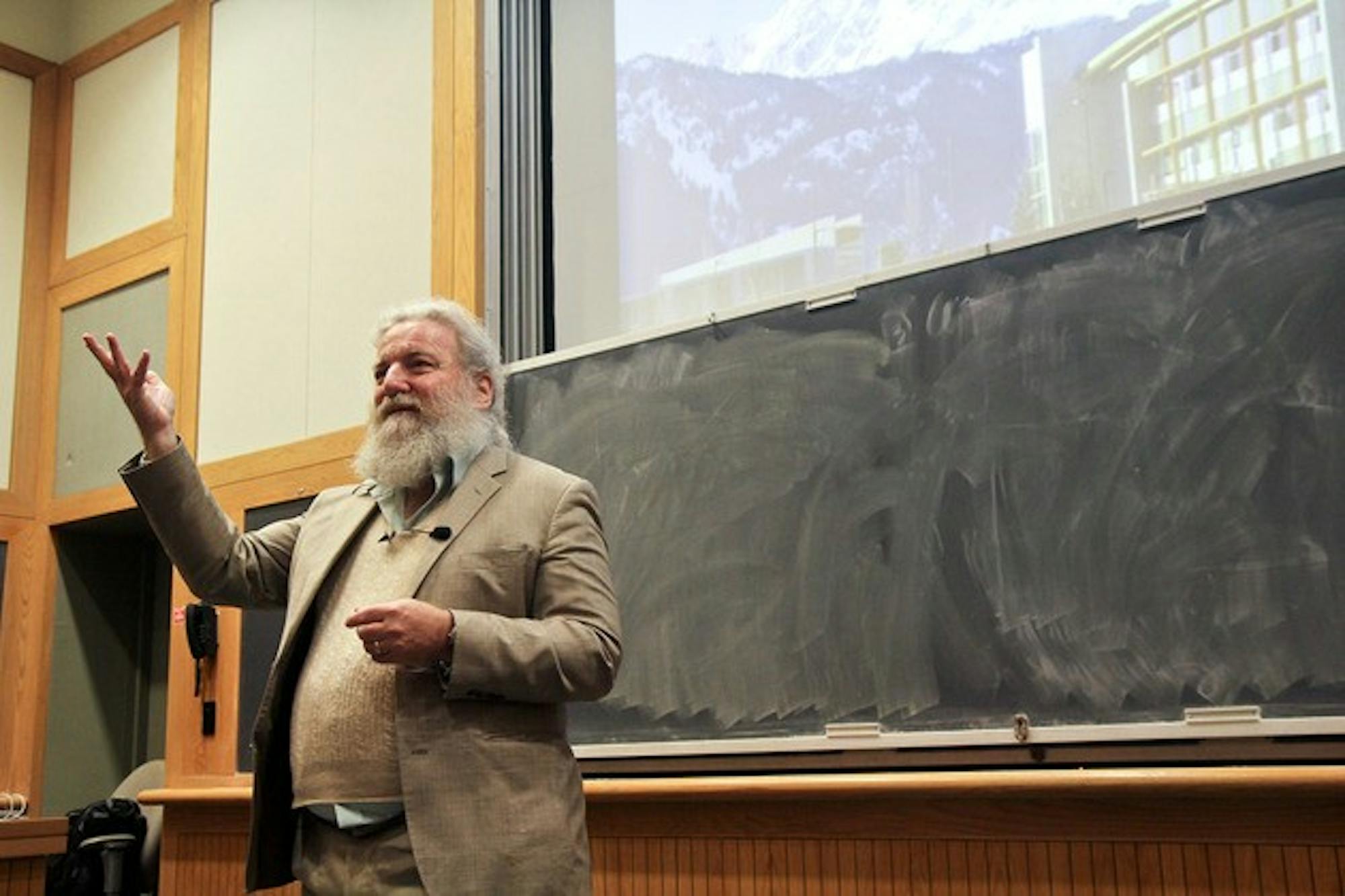Increased pressure on professors to conduct research and effectively educate their students creates a sense of pessimism about the university system, Helfand said. This culture punishes professors who focus on their teaching and encourages students to perceive their tuition as paying for a degree rather than an education, according to Helfand, who previously served as the chair of the astronomy department and co-director of the astrophysics laboratory at Columbia University.
"There was no mention of pedagogy, of teaching, or of how people learned," Helfand said of his PhD program. "When I walked into my first classroom at Columbia in 1977, I had never taught anyone anything."
Helfand described Quest as different than North American universities because of its strong undergraduate focus, which is reflected in a classroom cap of 20, a block-style schedule in which students take one course at a time for 18-day blocks and an individual two-year project requirement. Quest's administration has no interest in establishing any graduate programs, research institutes or additional certificate programs, Helfand said. All Quest students receive a bachelor of arts and sciences degree upon graduation, and the school has no departments or majors.
During the first two years at Quest, students take 16 foundation courses distributed among five disciplines, which are not designed to teach students a specific body of knowledge but to show them how a professional asks questions about the world, according to Helfand. For the next two years, Quest students dedicate their studies to a single question of their choice, which culminates in a presentation of their findings. Examples of questions from years past range from "What is need?" to "Is democracy a viable form of government to solve the problems of the 21st century?" to "What makes the perfect meal?"
Students at Quest take one class at a time for three hours a day for three and a half weeks, amounting to 18 weekdays and 54 hours dedicated to one subject. This system is intended to keep students from multitasking in their academic pursuits, according to Helfand.
"Your prefrontal cortex processes information in a serial fashion," Helfand said. "Therefore, multitasking is an unmitigated disaster if you're trying to educate someone."
Quest's block scheduling has attracted tutors Quest's unique name for professors who would not have been able to take the time off to teach at universities with traditional semester systems, such as the Canadian ambassador to Mozambique, he said.
Quest's unconventional approach has also paid off in terms of national publicity. Helfand cited the National Survey of Student Engagement, which ranked Quest first in all five of its categories of academic excellence in 2011, Helfand said.
Quest faculty and administrators are also receptive to the university's unique approach to academics.
"I flew up there for an interview with the university and said, This is completely nuts I'm in,'" Quest's Chief Academic Officer James Cohn '81 said.
College faculty and students in attendance responded positively to Helfand's ideas.
"It was the most interesting, fascinating conversation we have had as a working group trying to figure out different ways of delivering education here at Dartmouth," music professor Steven Swayne said.
Gabriella Starkey '16, who attended the lecture, described Helfand's ideas as "refreshingly innovative."
Joseph Donnolly '16 said that the concept could help expand students' horizons.
"I don't think the absence of majors or concentrations is a detriment to anything you'd get more of a breadth of knowledge," he said.
Quest was founded by David Strangway in September 2007 after he retired as president of the University of British Columbia, a large public institution.
Helfand's lecture was titled "Undergraduate Education for the New Millennium: Starting From Scratch."




